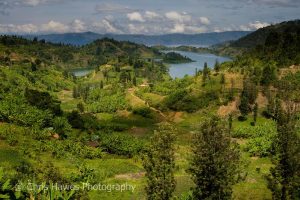A Comprehensive Guide to Sustainable Tourism in East Africa
Overview.
A Comprehensive Guide to Sustainable Tourism in East Africa. Sustainable tourism is essential for preserving East Africa’s natural beauty and cultural heritage while providing meaningful experiences for travelers. As tourism continues to grow in the region, adopting sustainable practices ensures that tourism benefits local communities, protects wildlife, and conserves the environment. This guide explores the principles of sustainable tourism and offers practical tips for travelers looking to make a positive impact on their East African adventures.
Understanding Sustainable Tourism
Sustainable tourism focuses on minimizing negative environmental, social, and economic impacts while maximizing benefits for local communities and ecosystems. It involves responsible travel practices that respect local cultures, support conservation efforts, and promote economic development. Sustainable tourism aims to create a balance between enjoying travel experiences and ensuring that future generations can also enjoy these destinations.
Choosing Eco-Friendly Accommodations
When planning your trip, opt for eco-friendly accommodations that implement sustainable practices. Look for lodges and hotels that use renewable energy sources, such as solar power, and have waste reduction and recycling programs. Many eco-lodges in East Africa also support conservation efforts and community development projects. Staying at these establishments helps ensure that your travel supports environmental and social sustainability.
Supporting Local Communities
One of the key aspects of sustainable tourism is supporting local communities. Choose tours and activities led by local guides, and purchase crafts and products from local artisans. Engaging in community-based tourism initiatives helps provide economic benefits to local populations and fosters cultural exchange. Respect local customs and traditions, and ensure that your interactions are respectful and mutually beneficial.
Minimizing Environmental Impact
Reducing your environmental footprint is crucial for sustainable travel. Adopt practices such as reducing plastic use, conserving water, and minimizing waste. When participating in wildlife tours, follow guidelines to avoid disturbing animals and their habitats. Stick to designated trails and areas to prevent damage to sensitive ecosystems. By making small changes in your travel habits, you can contribute to the conservation of East Africa’s natural resources.
Participating in Conservation Efforts
Many East African destinations offer opportunities for travelers to get involved in conservation projects. Consider participating in activities such as wildlife monitoring, tree planting, or habitat restoration. These activities not only enhance your travel experience but also contribute to the protection and preservation of the region’s natural and cultural heritage. Engaging in conservation efforts helps ensure that East Africa’s unique landscapes and wildlife remain intact for future generations.
Responsible Wildlife Viewing
Responsible wildlife viewing is a cornerstone of sustainable tourism. Always follow guidelines provided by your safari guides to ensure that your presence does not disturb wildlife. Maintain a safe distance from animals, avoid using flash photography, and never feed or attempt to interact with wildlife. Respecting wildlife behavior and habitat is essential for their well-being and helps maintain the balance of natural ecosystems.
Conclusion
Sustainable tourism in East Africa is about making conscious choices that benefit the environment, local communities, and the overall travel experience. By choosing eco-friendly accommodations, supporting local economies, minimizing your environmental impact, and participating in conservation efforts, you can contribute to a more responsible and enriching travel experience. Embrace sustainable practices on your journey through East Africa to help preserve the region’s natural and cultural treasures for future travelers.




